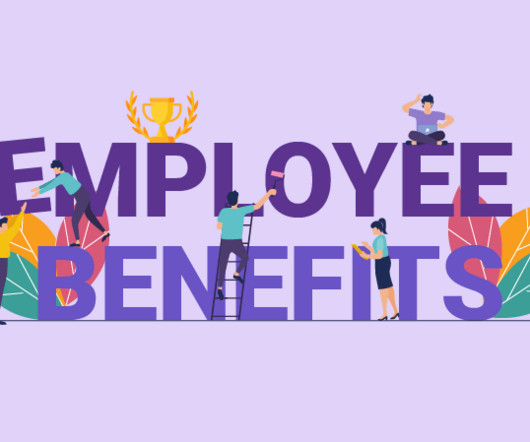Employee Benefits Guide for 2023: What Employers Need To Know
Vantage Circle
SEPTEMBER 23, 2023
Meeting Legal And Ethical Obligations: Certain benefits, such as health insurance, retirement plans, and paid time off, may be required by law in many jurisdictions. Stershic, Workplace Consultant. The organization pays specific amounts to cover an employee's medical care. And the choices within these plans?












Let's personalize your content